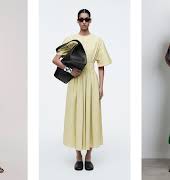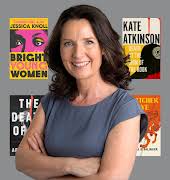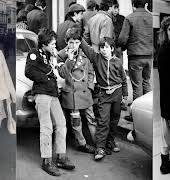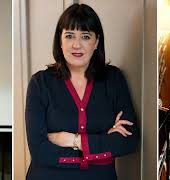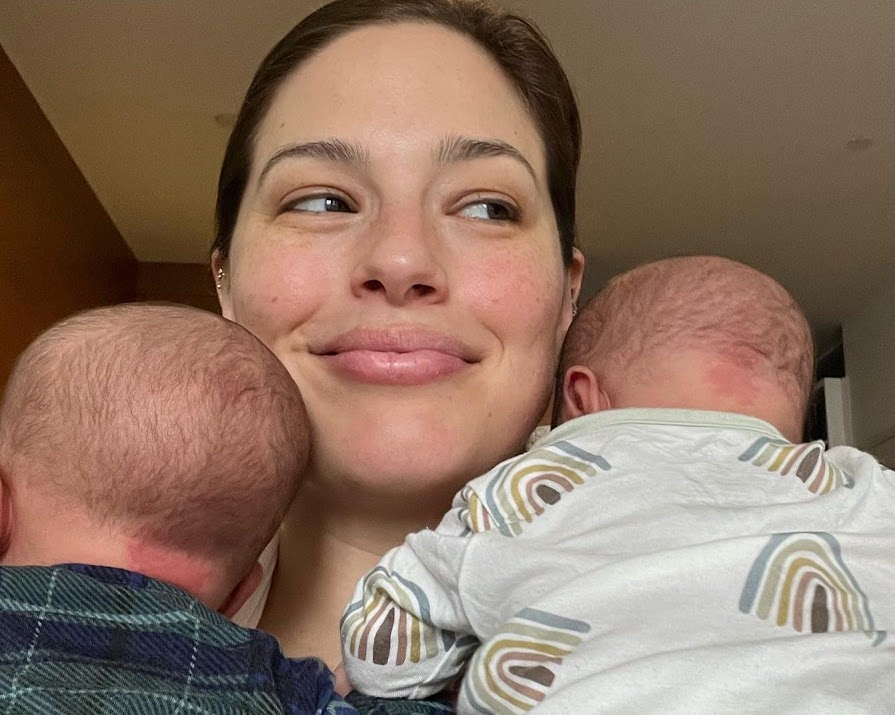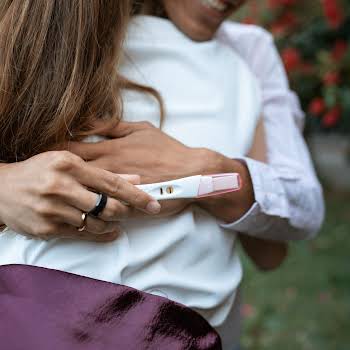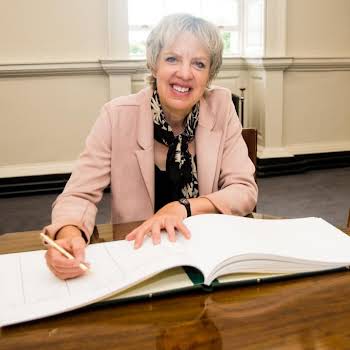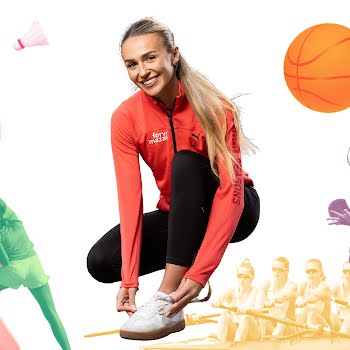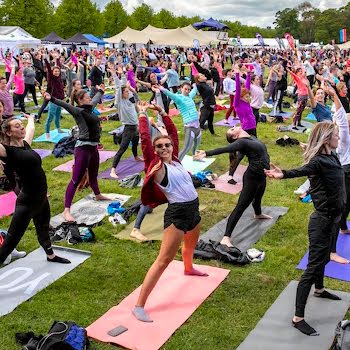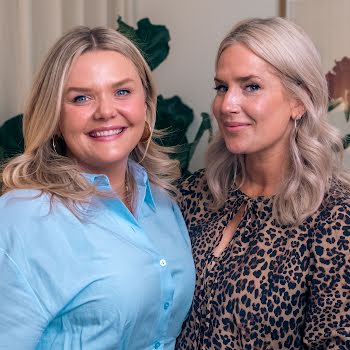‘I’d lost litres of blood’: Ashley Graham on miscarriage, the trauma of childbirth and accepting her body again
By Sarah Finnan
23rd May 2022
23rd May 2022
Penning a searingly honest article on parenting, the mum-of-three touches on everything from miscarriage to the trauma of childbirth and learning to love her body again.
*Please note this article contains descriptions of one mother’s traumatic experience of childbirth.*
Ashley Graham has always taken a no-nonsense approach to life. Whether she’s unpacking toxic fashion industry rhetoric, embracing her un-photoshopped body in all its glory or talking about her journey through motherhood, the model has grown a following for the unfiltered way in which she documents her day to day… and her recent Glamour essay on pregnancy is no exception.
Welcoming twins, Roman and Malachi, into the world back in January, it’s been a tough few months for the model, who started her deeply personal piece by revealing that she almost died during childbirth.
Close call
“The night I gave birth to the twins, I haemorrhaged. It was 2am when my contractions started. At 3:45am I went to the toilet thinking I needed the bathroom, and Malachi came out just as my doula was arriving, in time to bring him into the world,” she wrote.
“Two hours and seven minutes later, I had Roman in my apartment bathtub – we didn’t even have enough time to blow up the home birthing tub because everything happened so fast. At first, we were all celebrating. We couldn’t believe that my labour lasted just three and a half hours, and I was feeling so incredibly grateful to this team of skilled, intelligent, and trained professionals around me, who were there for me when I had Isaac, and were now with me again for the twins,” she recalled.
That’s when things took a turn for the worse. Telling her midwife that she didn’t “feel good” and needed to lie down, Graham blacked out almost immediately, only awakening when she felt “a light touch” on her cheek,
“When I finally came to, I looked around and I saw everybody. They just kept saying to me, ‘You’re fine. You’re fine. You’re fine.’ They didn’t want to tell me, right then, that I’d lost litres of blood. They didn’t want to tell me that one of the midwives had to flip me over, press her finger down right above my vagina bone to try and stop the bleeding. And they didn’t want to tell me that the vein in my arm kept collapsing and they couldn’t get the needle in for the Pitocin, so they’d had to put it in my hand.”
Emotional release
They didn’t want to tell her any of that, but one look around the room was enough to tell Graham that things weren’t ok. “[I] saw blood literally everywhere, and let out this deep, visceral cry,” she remembered, describing it as “an emotional release from the chaos [she] had just experienced”.
Barely able to sit upright, nurses had to roll Graham onto a twin-size bed sheet and slide her down the hall to the trundle bed in her guest room. There she stayed for “four straight days”. “I couldn’t walk for a week, and I didn’t leave my house for nearly two months,” she noted.
However, despite the obvious trauma of it all, it was also a period of great joy too and Graham leaned into the “acceptance and recovery” that spending time with her husband and three sons allowed her. It’s still taken her several months to feel ready enough to talk about it though.
Truthteller
“I tell you all of this – in pretty unflinching detail – because I believe in the importance of honesty; in revealing things about myself that I hope will help others talk about what they too have been through. But also because, like so many women, what I went through with childbirth has reshaped my relationship with my body.”
One of the key players in the body positivity movement, Graham has spent the best part of the past few years encouraging people to love the skin they’re in… but confidence has been harder to come by for her since becoming a mother.
Her first pregnancy went relatively smoothly. She had done “extensive research on childbirth” and was able to have the home birth she wanted. It took six hours with no complications and her son Isaac was born “smiling into the world”. It felt like a “magical moment” by all accounts. But then she was “plunged into the postpartum experience” or “the handbook that no one can give you” as Graham puts it. “Isaac was my entire world, but as a woman, the physical and emotional aspect was messy, a lot of hard work.”
Then Covid hit and the new family of three moved to Graham’s mother’s house in Nebraska where they saw no one and did nothing. “It felt really isolating, challenging, raising this baby knowing nothing. I also obsessed over this 20 pounds that just wouldn’t come off, and it felt like my body wasn’t my own.”
The pain of loss
In January 2021, the couple – now back in New York – fell pregnant again. “Because it was my second pregnancy, I started to show early, and we were so excited. But at the end of February, I had a miscarriage. It was devastating; it felt like one of the biggest losses I had ever had in my life to date. And I understood at that point what so many other mothers have gone through.”
Looking at Isaac was the only way to ease her pain, but the loss was so acute. “The world expects us to move on and handle our grief with grace,” Graham points out, noting that she broke down more than a few times.
Body image
Fast forward another few months and Graham found out she was pregnant with twins.
“I felt like ‘I’ve got this.’ But it was also pretty much the end of my body as I knew it,” she continued. And her journey to acceptance has been up and down since then. “Malachi and Roman’s birth was incredible, but the aftermath was deeply overwhelming. I couldn’t walk properly for a long time, let alone exercise. I would shake, I didn’t feel like myself physically or emotionally. I had planned to be back at work after eight weeks, but I was a wreck, and when I saw myself in the mirror, I still felt like I looked pregnant.”
Unlike so many other women across the world, Graham was in a position to take a longer maternity leave than she had anticipated and she still feels “deeply lucky” and privileged that she was able to do so. But the fashion industry is problematic at best and she still faced a huge amount of pressure to have “snapped back” into shape by the time she did eventually return to work – a lot of which was actually self-inflicted.
Now back with a new campaign titled “Reveal Yourself”, the model has teamed up with Knix for her most intimate lingerie shoot yet. “[It’s] ironic because here I am, revealing myself, in the hope that it empowers more women to speak more openly about their experiences,” she says of the new project. But if her work as a body advocate has taught her anything, it’s that it’s ok if the journey to self-love is more complex than you might have thought. She still has her days – on some, she feels unstoppable, on others she can’t help but focus on the new stretchmarks that decorate her body – but her work to create spaces for women to feel fearless and beautiful and vulnerable will continue regardless.

